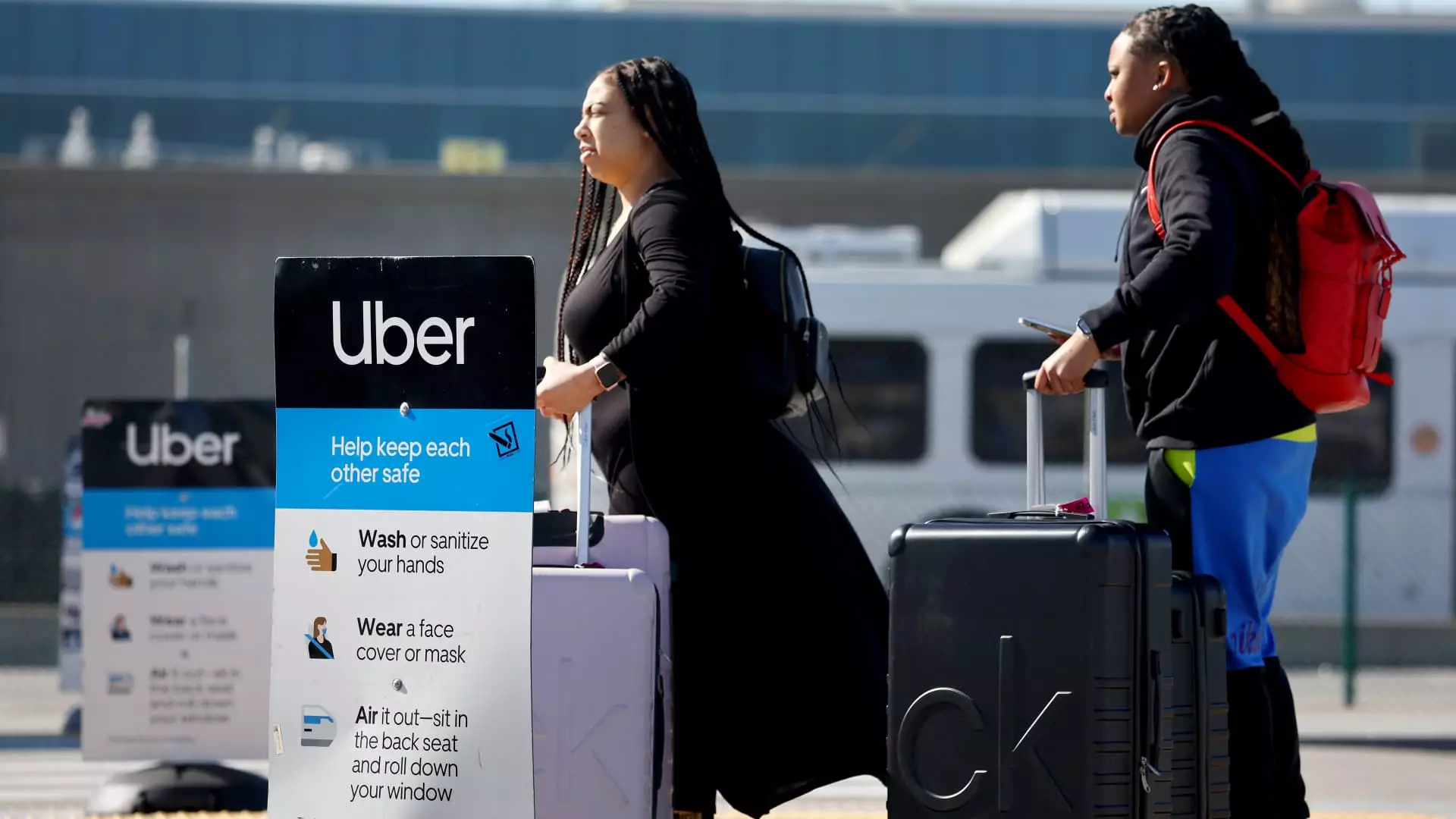In a pivotal move to enhance customer experience and solidify its position in the travel market, Delta Air Lines recently made headlines by announcing the end of its partnership with Lyft and the initiation of a collaboration with Uber. This strategic alliance, effective from the upcoming spring, marks a significant transition for Delta’s SkyMiles loyalty program. In an era where enhancing traveler satisfaction is paramount, this new partnership seeks to streamline airport travel and reward customers more richly as they utilize Uber’s services.
Delta’s decision to link its loyalty program with Uber is underscored by a structured earnings model that incentivizes various service levels. SkyMiles members stand to earn one mile for every dollar spent on UberX rides, while the rewards ramp up to two miles for luxury options like Uber Comfort and Uber Black. The most lucrative avenue is the three miles per dollar spent on Uber Reserve trips, reflecting an appeal to high-flying business or first-class travelers who often opt for premium transport services. Additionally, Delta SkyMiles members can accumulate miles through Uber Eats, a sophisticated integration that broadens the scope of earning potential associated with daily activities beyond just air travel.
Focus on Customer Experience
As travel rebounds following a significant downturn due to global events, the airline industry is poised for a renaissance. Delta’s CEO, Ed Bastian, emphasized that this partnership is not only about providing a convenience but also about enhancing the overall efficacy of travel experiences for customers. Uber’s CEO, Dara Khosrowshahi, echoed this sentiment by highlighting their commitment to ensuring efficient and effortless travel journeys. The collaboration signifies a united front to cater to the needs of modern travelers who seek immediate rewards and convenience at their fingertips.
On the flip side, Delta’s previous bond with Lyft operated for eight years, during which they cultivated a loyal customer base. These users will still have a transitional period to earn miles through Lyft until April 7. Delta’s spokesperson stated that affected customers will receive direct communication regarding this shift, ensuring they’re kept in the loop about their loyalty rewards. This smooth transition plan illustrates Delta’s commitment to maintaining customer trust and loyalty even in an evolving landscape.
The decision to partner with Uber rather than continue with Lyft raises questions about market dynamics and competitive advantages. With Uber boasting 161 million active users, compared to Lyft’s 24.4 million, Delta’s choice could be seen as a strategic pivot to harness a more extensive customer base, enhancing the overall effectiveness of its loyalty program. Moreover, the relationship with Uber, which already features synergies with American Express cards offering Uber benefits, adds an additional layer of integration that could further incentivize travelers to choose Delta for future flights.
Delta’s extensive network of partnerships transcends just the ride-hailing space. The airline collaborates with various well-known brands, such as Starbucks and Hertz, all aimed at enhancing its customers’ travel experience through rewards. This comprehensive approach reinforces Delta’s standing in the loyalty program arena, where diverse earning opportunities can foster greater customer engagement and brand loyalty.
The partnership between Delta and Uber was unveiled during the CES tech show in Las Vegas, a hotbed for technological advancements. There, Delta also announced forthcoming innovations like an artificial intelligence-powered “assistant” in its app, hinting at broader ambitions to elevate service levels through technology. Customer-centric enhancements, coupled with the Uber association, may position Delta as a frontrunner in an increasingly competitive market where convenience and loyalty are paramount.
As Delta moves toward an era of refinement in customer service offerings, it embarks on a journey that aims to make air travel not only rewarding but also seamless. The collaboration with Uber, underpinned by loyalty-driven incentives and innovative solutions, depicts an airline willing to adapt and evolve in response to changing consumer behaviors. As the travel landscape continues to re-establish itself, such strategic moves will likely dictate the future trajectory of major players in the aviation sector, setting new standards for what travelers can expect in loyalty programs.


Leave a Reply